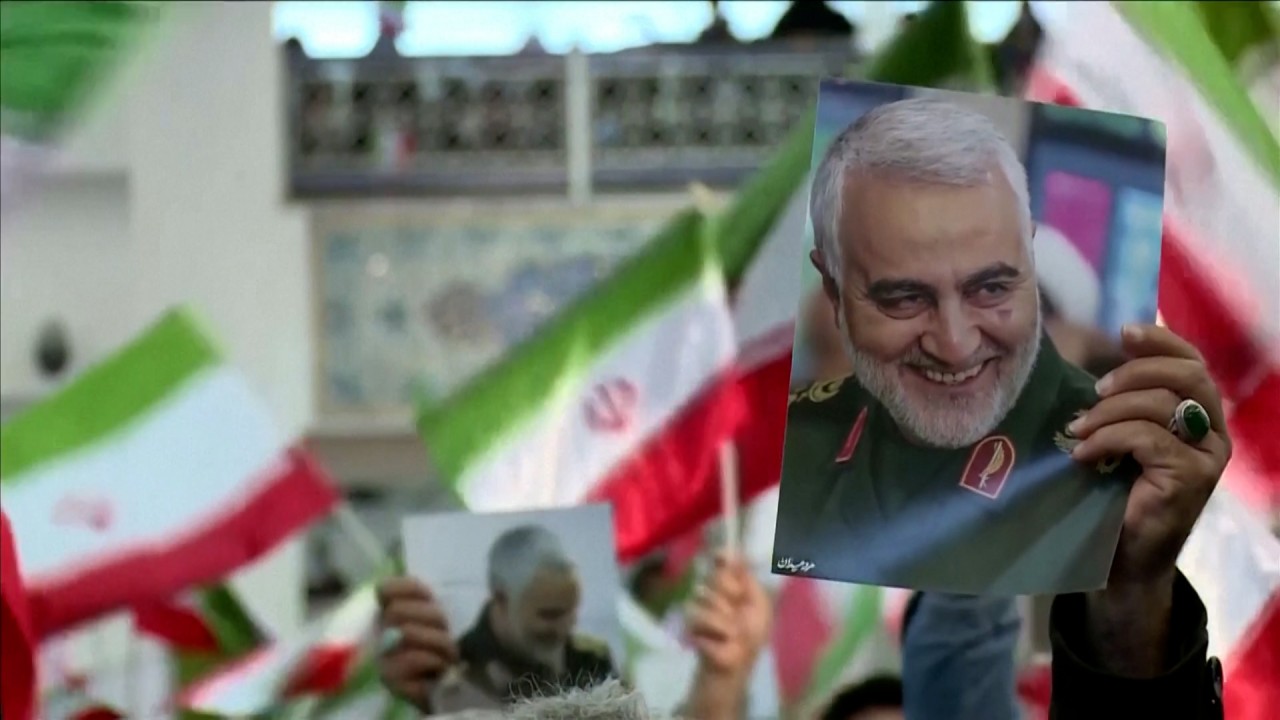
China ‘unlikely’ to pressure Iran to make concessions in nuclear talks after US warning time is running out
- White House National Security Adviser Jake Sullivan recently warned that there were only ‘weeks’ left to keep the talks viable
- Beijing has moved to strengthen relations with Tehran over the past year and may feel it has little to gain by urging it to give in to Washington’s demands
The latest round of talks over the Joint Comprehensive Plan Of Action (JCPOA) began in Vienna in late November and have been continuing over the past week.
China lobbies Russia, Iran and Pakistan to show unity on Afghanistan
Late last month US National Security adviser Jake Sullivan said there may be only “weeks” left before the talks were no longer “viable”.
But the US can only negotiate through the other signatories – China, Russia, Britain, Germany, France and the European Union- because Iran refuses to talk directly to the Americans.
The 2015 deal imposed curbs on Iran’s nuclear programme in return for sanctions relief. But Donald Trump walked out on the deal in 2018 and then imposed further sanctions on Tehran.
Iran said in June that it had enriched uranium to 60 per cent- a significant step towards the nuclear weapons-grade level of 90 per cent.
Tehran has said it will curtail its nuclear programme if Washington lifts the post-2018 sanctions but argues the US has not provided sufficient guarantees it will not walk away from the deal again.
China shows solidarity with Ian amid pressure from US over nuclear deal
Wu Bingbing, a senior research fellow at Peking University’s Institute of International and Strategic Studies, said these developments have not changed China’s role in the nuclear discussions.
“China’s stance on the security of Iran and the region at large has always been coherent, but new elements and proposals have been added [to the relationship]. Questioning what China can do to help forge the deal is not correct. China has an interest in boosting relations with Iran regardless of the deal. ” Wu said.
“It is not reasonable to convince any country to sign up for something it does not see as favourable to their national interest. The same people who question whether China is doing enough should also question if the European countries are doing enough to convince the US to amend its demands.”
Fan Hongda, a professor of Middle East studies with the Shanghai International Studies University, said China’s role of being a coordinator has been consistent and it has little incentive to start pressuring Iran now.
“Based on Washington’s recent diplomatic behaviour, no matter how much China helps the US in the current Vienna talks it will not change the US course of containing and targeting China,” he said.
“But if China tries to pressure Iran, it will harm bilateral relations and the Comprehensive Strategic Partnership will come to nothing.”
Ali Vaez, the International Crisis Group’s Iran Project Director based in Washington DC, disagreed that China’s role has remained the same.
“In the 2013-15 period, China was more of a bystander than a proactive player in the negotiations. Now, especially given the fact that Iran is refusing to directly negotiate with the US, and because of China’s tense relations with Washington, China is playing a more significant role,” said Vaez, who led the think tank’s team that helped act as an intermediary in the 2015 negotiations.
“China holds a lot of cards, as it can either throw Iran an economic lifeline to survive any tightening of US sanctions in case the JCPOA collapses, or it can put more pressure on Iran to restore the JCPOA.”
Iran vows revenge unless Trump tried for Soleimani killing
Vaez said while China and Russia do not want Iran to acquire nuclear weapons, they believe that heaving the fissile material to make a bomb “does not equate having a nuclear weapon without a clear Iranian weaponisation effort”.
Ma Xiaolin, director of the Institute for Studies on the Mediterranean Rim at Zhejiang International Studies University, said the increasingly close ties between China and Russia also played a part.
“If China and Russia have to choose sides on the Iranian nuclear issue, they will definitely offset the US pressure through Iran.” Ma said.
Bill Figueroa, a post-doctor fellow specialising in China-Iran relations at University of Pennsylvania, said while China has an interest in seeing a deal reached between Iran and the US, and said he believed China has been doing a great deal in pressuring Iran into offering terms it believes the US will accept.
“Iran-US relations are in fact a prerequisite for the Chinese side on following through with the kinds of projects and support signalled by the 25-Year Iran-China Strategic Cooperation Agreement,” he said.
“They have made it very clear to Iran, both before and after the 25-Year Agreement, that its implementation requires the removal of the sanctions. While China could potentially be doing more, Chinese officials probably do not see it in their best interest to push the United States too hard, nor do they probably have much ability to do so.”
Additional reporting by Ben Zhao


